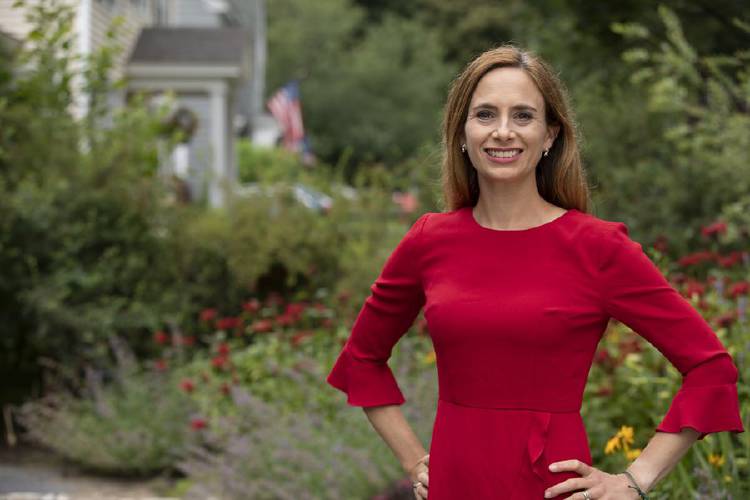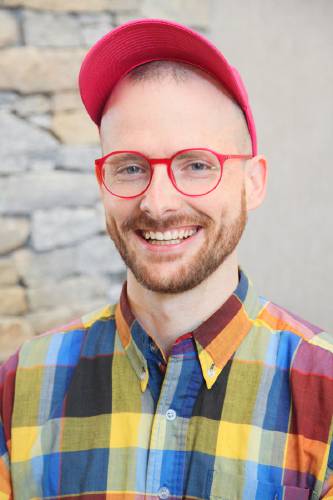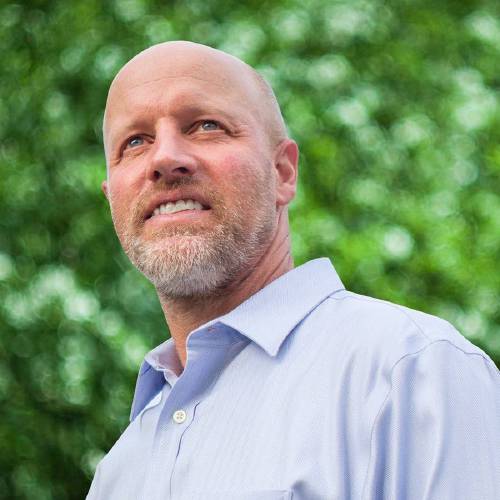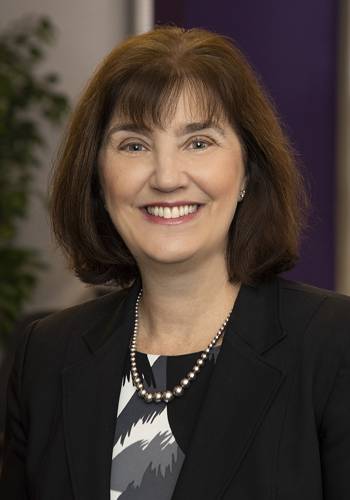Meet the District 2 Democratic candidates for Executive Council
It’s perhaps the busiest race for an Executive Council district in decades – six Democrats and two Republicans. But for all their ideological similarities, each of the Democratic candidates hoping to succeed Andru Volinsky next year have been defined by unique paths to get there.


It’s perhaps the busiest race for an Executive Council district in decades – six Democrats and two Republicans. But for all their ideological similarities, each of the Democratic candidates hoping to succeed Andru Volinsky next year have been defined by unique paths to get there.
The Monitor interviewed all six. Here’s a closer look at who they are:
Leah Plunkett

Leah Plunkett didn’t even know she wanted to run for Executive Council last year. Then along came Gordon MacDonald.
Early into June 2019, New Hampshire Attorney General was nominated by Gov. Chris Sununu to serve as Chief Justice of the New Hampshire Supreme Court. To many New Hampshire lawyers, MacDonald presented a strong profile: a battle-tested lawyer whose experience at the head of the Department of Justice made him familiar with the state’s legal landscape and its challenges.
But Plunkett saw issues right away. As the chairwoman of the board of directors for the Planned Parenthood New Hampshire Action Fund, she immediately had doubts about MacDonald’s potential stances on reproductive rights. In her official role, she began raising questions about his suitability for the high court. It was difficult territory initially; many in the New Hampshire bar supported Sununu’s choice, and a large number of them signed a letter indicating that.
Two months after his nomination, the Council struck down MacDonald’s bid, in an explosive party-line rebuke that set relations between the five-member body and the governor into a tailspin. But Plunkett had seen enough from the Council to know she wanted to take part. When it became clear that Andru Volinsky – the Democratic councilor who had led the rejection of MacDonald – was seeking higher office, Plunkett decided to go for the vacant seat herself.
It’s what Plunkett called the “single motivating factor that made me flip the switch” into politics – and particularly into the Executive Council. And it presents a clear connection from Plunkett’s earlier career work with Planned Parenthood, which recently endorsed her, to her desire to enter politics, she says.
Plunkett has worked at New Hampshire Legal Assistance, founding the Youth Law Project, which provides services to children at risk of entering the juvenile justice system. Recently, she’s served as an associate professor of legal skills and the associate dean of the University of New Hampshire law school in Concord.
But there’s another identifier she says sets her apart: She’s a working mother, with kids in the public school system. That means she understands the cross-section of challenges facing young Granite Staters at a time of intense pressure.
“How the heck do we keep our jobs, or look for jobs if we’ve lost them, keep our kids educated and healthy, take care of family members who might need us?” she said. “…This is the female workforce in the Granite State. That is extraordinarily important, not just for them and their households, but for making sure that this is a state where women and their families can come and thrive.”
John Shea
In one of the most crowded primaries for an Executive Council seat in memory, one piece is missing from most candidates’ promises: constituent service.
That’s according to John Shea, anyway. The Nelson Democrat is running to reclaim the seat he once held from 2006 to 2010. And to him, the Council needs to return to its service-oriented roots.
The five-member council carry the biggest districts of any state elected office other than the governor, with each councilor representing around 260,000 Granite Staters. But rather than being there for their constituents, too many on the Council have used the post as a supplement to their day job, and a launching pad for higher office, Shea says.
Republican Gov. Chris Sununu won his governorship from that position. Democrat Rep. Chris Pappas ascended to Congress. Democrats Colin Van Ostern and Andru Volinsky have, in different election cycles, mounted their own bids for governor from the Executive Council.
Meanwhile, everyone who has sat in the Executive Council District 2 seat since he left it in 2010 has held onto their day job, Shea notes.
That’s not the way Shea remembers the Council working best. When he came on board as a Democrat in 2006 – on the heels of a one-term stint as a state representative and a six-year run on the Keene city council – partisanship was a much less potent force. Shea’s main mentor was Ray Burton, the long-time Republican Councilor famous for his forceful advocacy for the North Country.
Burton taught Shea that even more important than the decisions of the councilors on contracts and nominations is the representation. A good councilor knew their district, and traveled it often to be there for their constituents, Burton said. Only by keeping the phone open at all hours and putting in the miles on the road could that councilor know what contracts would affect which town industries, and who would be best suited to run for which post.
Shea, 85 and long retired from his insurance career, says he’s ready to do that. His opponents are not, he added.
“They’re lawyers,” he said. “All they seem to be aware of is two meetings a month, maybe 12 hours of preparation total.”
Speaking on his time on the Council he added: “I visited all 67 towns. And I ran on (being available) 24/7 and being available for travel anywhere between towns. I was on the road three days a week, sometimes four.”
Emmett Soldati

Emmett Soldati isn’t sure what brought him back home to Somersworth, nine years ago, just out of graduate school in London. It certainly wasn’t a desire to enter the cafe business.
The 22-year-old son of Lincoln Soldati, Somersworth’s mayor at the time, had a more than a slight hankering for local politics. Without wasting time he made a go of one of the city council, brazenly attempting to take on “the old boys club” and one of its incumbents.
It wasn’t until he lost that race, his ego in check, that he thought of other ways to give back.
Nine years later, the business Soldati started has defined his political identity. Soldati’s downtown cafe, the “Teatotaller,” has become a destination point for candidates for every office from state senate to President. And the community that the non-alcoholic, late-night LGBTQ allied space has engendered has pushed Soldati into his second quest for public office.
Now 29, Soldati is picking an unusual office for a young candidate in New Hampshire. But he says the business he’s built has given him a unique perch to do so: as a voice for young Granite Staters and marginalized communities.
Soldati sees much of what he does politically through the lens of his home city. Growing up, he always saw problems on the local level – failing schools, struggling businesses – as unique to the city. Now, he says, he realizes they’re tied to systemic dysfunction.
“This is a statewide problem,” he said. “This has to do with our tax structure, it has to do with who’s in power. And that for me … got my gears turning around: We need different voices at the table talking about this at a state level.”
Soldati argues that the Executive Council has been too obscure for too long. He would treat it as a “constituent-minded body,” with stronger outreach from councilors to people in their districts, encouraging them to put their names forward for positions or messaging to voters what the council is doing.
He would use the post in part to hold state commissioners accountable, like George Copadis and Richard Lavers, the commissioner and deputy commissioners of the Department of Employment security respectively, who oversee the states unemployment system.
But he would vote against nominees if they don’t share the right values for the post, he said.
“It isn’t so much a ‘go or no go,’” he said about vetting nominees. “It’s using the opportunity to ask someone a question that I strongly believe other councilors just would not ask.”
Jay Surdukowski

According to Jay Surdukowski, if there’s one thing he’s standing for this Executive Council primary, it’s consensus.
Perhaps that’s not a consistently achievable goal. The Council is presently in Democratic hands under a Republican governor. Clashes are inevitable.
But Surdukowski argues the role of the Council should be to soberly attempt to build consensus, not fall back on party-line opposition. And to him that means actively working with Gov. Chris Sununu.
It’s a somewhat unorthadox approach that the Concord attorney has bolstered by taking positions that set him at odds with other Democratic candidates and even Executive Councilor Andru Volinsky himself. But Surdukowski says that it’s a return to how the Council was intended to operate.
Most notably, Surdukowski supported the nomination of Attorney General Gordon MacDonald to the state supreme court, rallying together a roster of New Hampshire lawyers to sign a letter in support of MacDonald. He has decried Volinsky and other Democrats for voting down that nomination 3-2, a year ago. And he supports Gov. Chris Sununu’s decision to withhold putting forward new Supreme Court nominee until the Democratic majority changes its approach to nomination.
Surdukowski also has taken issue with other actions led by Volinsky, including his rejection of state Board of Education nominee Ryan Terrell earlier this year and the Council’s refusal to hold a hearing for Office of Professional Licensure and Certification executive director nominee Eddie Edwards, who later withdrew his nomination.
Both of those nominees were Black; Volinsky has since apologized for calling Edwards a choice driven by “tokenism” and for questioning Terrell’s experience. Surdukowski says both nominees should have been confirmed.
Surdukowski also disagreed with the Executive Council’s decision to hold up a $1.4 billion budgetary spending provision in May over objections to Sununu’s approach to COVID-19 relief money. The Council ultimately released the money weeks later.
For Surdukowski, the disagreements have nothing to do with his party loyalty; as a former attorney for Maggie Hassan and Colin Van Ostern and a former state party official himself, his Democratic credentials are not in question, he says. The point, he says, is that the Council has drifted into a partisan, adversarial role when it historically has been about cooperation and levelheaded checks and balances.
That issue is what drove Surdukowski to run for the position, and it’s the one he says he’s the sole candidate to solve.
Craig Thompson

For so many Granite Staters, the expected threats and effects of climate change are still theoretical. They aren’t theoretical to Craig Thompson.
The Harrisville farmer is acutely aware of the changing seasonal temperature trends and increasingly volatile day-to-day swings. They can mean the difference between a premature onslaught of pests or a prolonged period of drought and a successful growing year.
Thompson knows what he’s talking about; for 11 years he and his wife have owned Mayfair Farm in Harrisville, managing pork, lamb, hay, fruit and maple syrup production as well as catering and events. A disruption in the weather or in the supply chain one year can have knock on effects across the board.
Now, looking at the Executive Council, Thompson sees a new tool in the effort to turn the tide. With oversight over appointments to smaller but consequential posts like the Public Utilities Commission and the Site Evaluation Committee – not to mention bigger roles like the commissioners of Agriculture and Environmental Services, the Council has muscle that could be put to use, he says.
“It’s a body that we haven’t used yet to try to affect the climate crisis,” he said.
For a New Hampshire politician, Thompson is relatively new to the scene; he’s finishing up the second year in his first two-year term as a state representative. But he made the decision to run in December as a direct result of a dynamic he says needs to change: an overabundance of Executive Councilors from Concord – many of them Concord lawyers.
“To me there’s a real need for outside voices in this race,” he said. “And a diversity of life experiences and perspectives.”
Thompson says he’s seen first the difficulty many in the southwestern and southeastern corners of the state have of getting noticed in Concord, let along properly represented. In a uniquely sprawling district like District 2, which spans from the Connecticut river in Cheshire County to the Maine border, balancing geographic focus is a tall order for any councilor, Thompson says. It’s especially difficult for those who already live in Concord themselves.
The dynamic means some topics don’t always get the full court press in the State House they deserve, such as PFAS water contamination in the southeast or rural broadband access in the southwest, Thompson argues. That’s something he could turn around, he says.
Running for the seat, Thompson says the political realities should also be noted: District 2 is a traditionally strongly-Democratic seat. That means the candidate who succeeds Volinsky should continue Volinsky’s reputation as a progressive fighter.
“The person who holds District 2 shoud be the person who can pull the whole council to the left,” he said. “It’s not a seat that should be held by a moderate or an establishment candidate.”
Cinde Warmington

Amid the continued threat of COVID-19 and the financial certainty of budget cuts, the landscape for any new political leader in 2021 is grim. But Cinde Warmington says she’s the perfect candidate for a national health crisis.
The Concord attorney hasn’t just dabbled in health care contracts; she’s been intimately involved in them. As a partner at Shaheen and Gordon, Warmington has specialized in negotiating and securing contracts for providers in New Hampshire. She knows what counts as a good state investment and what is administrative bloat, she says.
Much of Warmington’s life has been tied the health profession. From an early career drawing blood to a later role as a health care administrator, Warmington had her feet firmly planted in the medical side of the business long before she took on the legal side.
Now, with COVID-19 still a formidable presence, the way New Hampshire structures its health care system to meet the threat and recover for it takes paramount importance. For instance, the state has embraced telehealth, Warmington notes.
“We saw all the barriers that were placed before in the delivery of telehealth just fall down overnight,” she said. But she said that politicians in the Legislature and the Council need to work to make sure that that expansion is not permanent.
The continuing existence of prior authorizations – an approval mechanism that can create a barrier to patients receiving care – is another thing the state needs to look at re-evaluating, just as the state’s Medicaid managed care organizations need to stop changing the drug formularies: the lists that dictate what medications will be made available to Medicaid recipients.
Each of these areas might seem small, but they make monumental differences to those in the hospital. And the change can start from the Executive Council, Warmington says.
“Those are just a few examples how we’re really going to look at these contracts from a different perspective, but we can only do that if we’re able to ask the questions earlier in the process,” she said.
This is Warmington’s most ambitious campaign pledge: a vow to change the way contracts are developed. Rather than waiting for the governor and his departments to set the agenda by choosing the contracts and putting them out to bid without initial input from the council, Executive Councilors should be much more involved. They should work with the departments months in advance to help craft the contracts and layout the criteria, she added.
Warmington has extensive political roots, currently serving as the head of the New Hampshire Democratic Party’s standing committee, with previous involvement in the Belknap County Democrats. But it’s her health care background that she says is what deserves her the District 2 seat.
“We are going to be rebuilding from a pandemic,” she said. “There’s going to be a lot of contracting and a lot of work that needs to be done. And having someone with a health care background is a great asset to the state.

These articles are being shared by partners in The Granite State News Collaborative. For more information visit collaborativenh.org.





